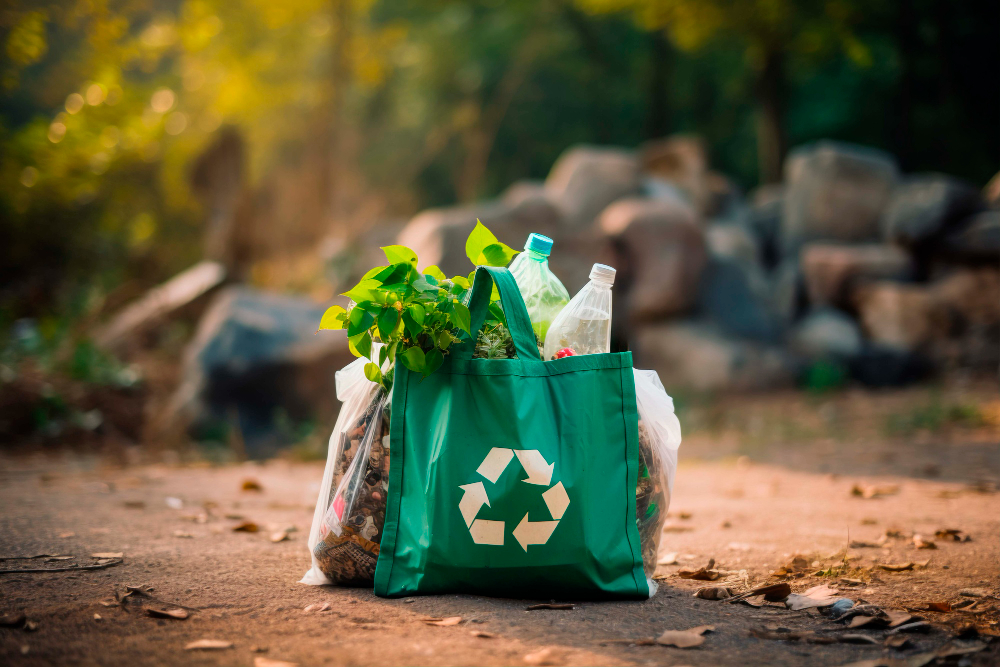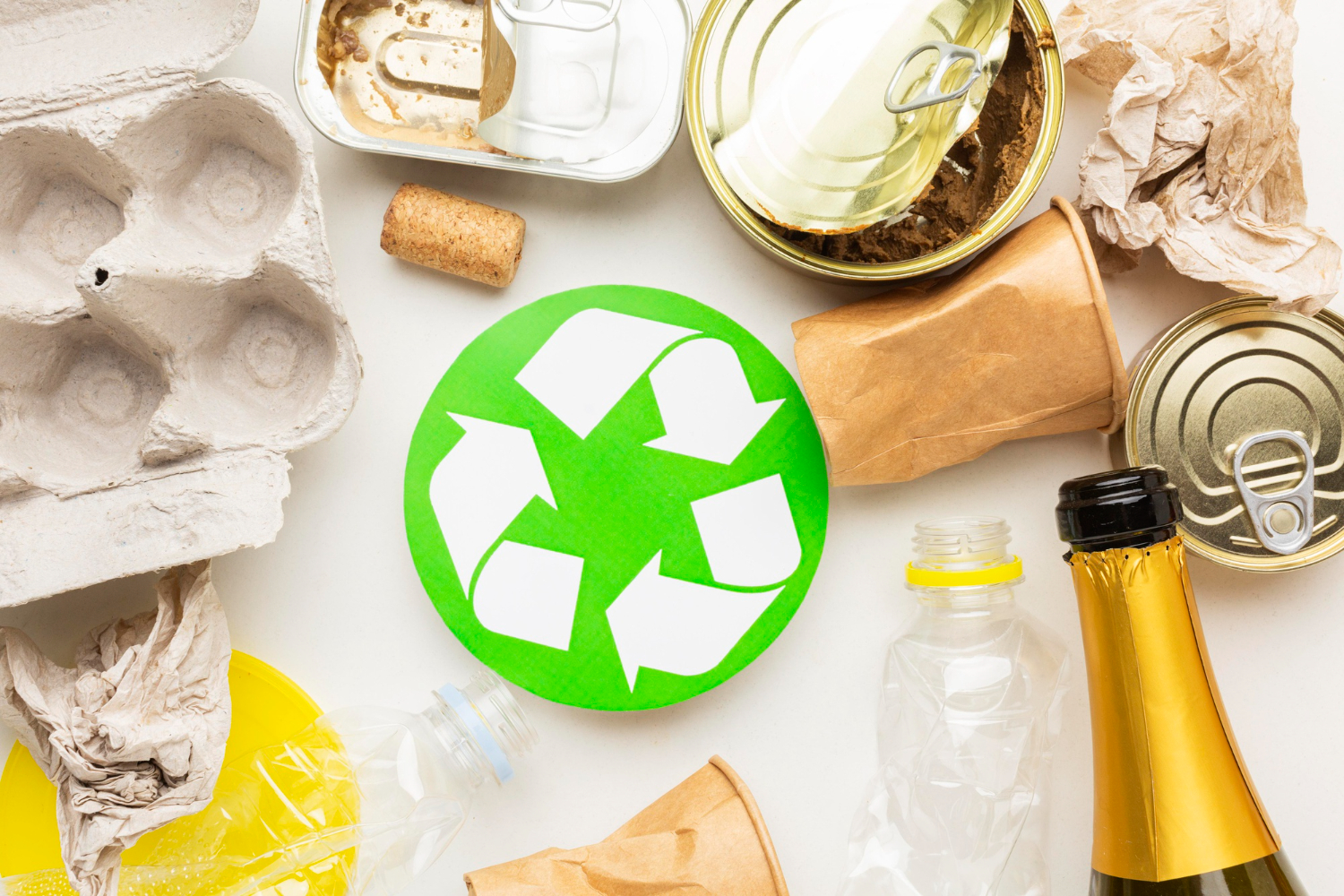Traveling can often lead to a significant amount of waste, from single-use plastics to disposable items used in transit. However, with a bit of planning and a conscious effort, it’s possible to minimize your environmental footprint. Welcome to the comprehensive guide on Zero Waste Travel, where we’ll explore everything from packing tips to selecting eco-friendly destinations. Let’s embark on a journey that leaves nothing but footprints.
Introduction to Zero Waste Travel
What is Zero Waste Travel?
Zero Waste Travel involves adopting practices and strategies that minimize waste generation while traveling. It emphasizes reducing, reusing, and recycling, aiming for a minimal environmental footprint. By making sustainable choices, travelers can enjoy their journeys without contributing to the growing problem of waste pollution.
The Importance of Zero Waste Travel
Traveling sustainably is more crucial than ever. With the increasing awareness of environmental issues, adopting Zero Waste Travel practices can significantly impact the health of our planet. By reducing waste, conserving resources, and supporting eco-friendly businesses, we contribute to a cleaner and greener world.
Planning Your Zero Waste Trip
Researching Your Destination
Before setting off, research your destination’s waste management practices. Look for places that have recycling facilities, composting programs, and eco-friendly policies. Countries and cities that prioritize sustainability will make your Zero Waste Travel experience smoother and more enjoyable.
Choosing Eco-Friendly Accommodations
Opt for accommodations that have implemented sustainable practices. Look for hotels or lodgings with certifications like LEED, Green Key, or EarthCheck. These establishments often follow strict guidelines to minimize their environmental impact, making your stay more eco-friendly.
Zero Waste Packing Tips
Minimalist Packing
Pack only what you need to avoid over-packing and reduce the weight of your luggage. A minimalist approach not only makes your travel more efficient but also decreases the resources used for transportation.
Sustainable Travel Gear
Invest in reusable and sustainable travel gear. Items like stainless steel water bottles, bamboo toothbrushes, and cloth bags are excellent choices. They replace single-use plastics and reduce waste significantly.
Keypoint 1: Reusable travel gear can save money and reduce waste over time.
Reducing Waste During Transit
Eco-Friendly Transport Options
Choose transportation options that have a lower environmental impact. Trains, buses, and carpooling are more sustainable than flying. If flying is necessary, consider carbon offset programs to mitigate your flight’s environmental impact.
Waste-Free Snacks
Bring your snacks in reusable containers. Avoid purchasing single-use plastic-wrapped items, which contribute to waste. Fruits, nuts, and homemade snacks are healthy, waste-free options.
Sustainable Practices at Your Destination
Dining Out Sustainably
When eating out, choose restaurants that follow sustainable practices. Support eateries that use locally sourced ingredients, have composting programs, and avoid single-use plastics.
Zero Waste Shopping
Purchase souvenirs and gifts from local artisans who use sustainable materials. Avoid plastic trinkets and opt for items that are environmentally friendly and support the local economy.
Keypoint 2: Supporting local businesses that prioritize sustainability boosts the local economy and reduces waste.
Zero Waste Travel Activities
Eco-Friendly Tours
Participate in tours and activities that prioritize environmental conservation. Look for operators who support wildlife protection, reduce waste, and educate participants about sustainable practices.
Volunteer Opportunities
Consider spending part of your trip volunteering for environmental causes. Whether it’s beach clean-ups, wildlife conservation, or tree planting, these activities contribute positively to the environment.
Zero Waste Travel for Families
Traveling with Kids
Involve your children in Zero Waste Travel practices. Teach them about the importance of reducing waste and involve them in activities like packing reusable items and choosing eco-friendly destinations.
Family-Friendly Eco Destinations
Choose destinations that offer educational and fun activities for kids while promoting sustainability. National parks, eco-resorts, and nature reserves are excellent options for family trips.
Navigating Different Waste Systems
Understanding Local Waste Practices
Research the waste management practices of your destination. Understanding local recycling and composting rules can help you dispose of waste correctly and support local systems.
Adapting to Different Cultures
Respect and adapt to the waste practices of the places you visit. Some cultures may have unique methods of handling waste that you can learn from and incorporate into your Zero Waste Travel routine.
Keypoint 3: Being adaptable and respectful of local practices enhances your travel experience and supports sustainable efforts globally.
Zero Waste Travel for Business Trips
Sustainable Business Travel
Incorporate Zero Waste principles into your business trips. Opt for digital documents instead of printed materials, use reusable utensils, and stay at eco-friendly hotels.
Hosting Zero Waste Meetings
If you’re organizing meetings or events, choose venues that support sustainability. Provide reusable water bottles, minimize disposable items, and ensure proper waste segregation.

Zero Waste Travel Challenges and Solutions
Common Challenges
Zero Waste Travel isn’t without its challenges. Finding recycling bins, avoiding plastic packaging, and dealing with non-recyclable waste can be tricky.
Overcoming Obstacles
Plan ahead to overcome these challenges. Bring your waste back home for proper disposal if necessary, and stay informed about local waste management practices.
Benefits of Zero Waste Travel
Environmental Impact
Zero Waste Travel significantly reduces your carbon footprint and conserves natural resources. By minimizing waste, you contribute to the health of our planet.
Personal Satisfaction
Traveling sustainably can be incredibly rewarding. Knowing that you’re making a positive impact on the environment enhances your travel experience and fosters a deeper connection with nature.
Keypoint 4: The benefits of Zero Waste Travel extend beyond environmental impact, providing personal satisfaction and enriching travel experiences.
Zero Waste Travel and Technology
Apps and Tools
Utilize technology to support your Zero Waste Travel efforts. Apps like Too Good To Go and Refill My Bottle help reduce food waste and find water refill stations.
Digital Nomad Lifestyle
For digital nomads, Zero Waste Travel involves reducing electronic waste and using eco-friendly gadgets. Choose energy-efficient devices and responsibly dispose of old electronics.
Zero Waste Travel on a Budget
Affordable Sustainable Choices
Traveling sustainably doesn’t have to be expensive. Budget-friendly options like camping, hostels, and public transportation can align with Zero Waste principles.
DIY Zero Waste Hacks
Implement DIY hacks to save money and reduce waste. Make your own toiletries, pack homemade snacks, and repurpose items creatively.
Eco-Friendly Destinations
Top Sustainable Cities
Explore cities known for their sustainability efforts. Copenhagen, San Francisco, and Melbourne are examples of cities with robust recycling programs, green spaces, and eco-friendly transportation.
Nature-Based Destinations
Visit nature reserves, national parks, and eco-lodges that prioritize conservation. These destinations offer immersive experiences in pristine environments.
Keypoint 5: Choosing eco-friendly destinations enhances your travel experience and supports global sustainability efforts.
Zero Waste Travel Resources
Books and Guides
Numerous books and guides offer insights into Zero Waste Travel. Titles like “Zero Waste Home” by Bea Johnson provide practical tips and inspiration.
Online Communities
Join online communities and forums dedicated to Zero Waste Travel. Connect with like-minded travelers, share experiences, and learn from others.
Sustainable Souvenirs
Crafting Your Own
Consider making your own souvenirs using natural or recycled materials. This personal touch not only reduces waste but also creates meaningful keepsakes.
Supporting Local Artisans
Purchase souvenirs from local artisans who use sustainable practices. Items made from natural fibers, recycled materials, or organic products are excellent choices.
Zero Waste Travel and Health
Staying Healthy on the Go
Maintain your health while traveling by carrying a reusable water bottle, packing nutritious snacks, and avoiding processed foods wrapped in plastic.
Eco-Friendly Personal Care
Use natural and eco-friendly personal care products. Solid shampoos, reusable makeup remover pads, and bamboo razors reduce waste and are better for your skin.
Zero Waste Travel for Special Occasions
Sustainable Honeymoons
Plan a Zero Waste honeymoon by choosing eco-friendly destinations and activities. Opt for romantic getaways that prioritize sustainability and environmental conservation.
Green Getaways
Celebrate special occasions with green getaways. Whether it’s an anniversary, birthday, or family reunion, eco-friendly travel options can make these events memorable and sustainable.
The Future of Zero Waste Travel
Trends in Sustainable Tourism
The tourism industry is increasingly embracing sustainability. Trends like eco-friendly accommodations, sustainable transportation, and responsible tourism practices are shaping the future of travel.
Innovations in Zero Waste Travel
Innovations such as biodegradable packaging, waste-to-energy technologies, and zero waste tour operators are paving the way for more sustainable travel experiences.
Conclusion
Embracing Zero Waste Travel
Adopting Zero Waste Travel practices requires commitment and effort, but the benefits are immense. By making conscious choices, you can enjoy your travels while protecting the environment.
Your Role in Sustainable Travel
Every traveler has a role to play in promoting sustainability. Embrace Zero Waste Travel, spread awareness, and inspire others to follow suit. Together, we can create a greener future.
FAQs
- What is Zero Waste Travel? Zero Waste Travel involves practices that minimize waste generation, emphasizing reducing, reusing, and recycling during travel.
- How can I pack for a Zero Waste trip? Pack minimally, using reusable and sustainable items like stainless steel water bottles, bamboo toothbrushes, and cloth bags.
- What are some eco-friendly travel destinations? Copenhagen, San Francisco, and Melbourne are known for their sustainability efforts. National parks and nature reserves are also excellent choices.
- How can I reduce waste during transit? Choose eco-friendly transportation, bring snacks in reusable containers, and avoid single-use plastics.
- Can Zero Waste Travel be budget-friendly? Yes, sustainable travel can be affordable with options like camping, hostels, and public transportation aligning with Zero Waste principles.
- What are some common challenges of Zero Waste Travel? Finding recycling bins and avoiding plastic packaging can be challenging, but planning ahead can help overcome these obstacles.
- How can I stay healthy while traveling sustainably? Carry a reusable water bottle, pack nutritious snacks, and use eco-friendly personal care products to maintain health on the go.
- Are there apps to help with Zero Waste Travel? Yes, apps like Too Good To Go and Refill My Bottle assist in reducing food waste and finding water refill stations.
- What are sustainable souvenirs? Sustainable souvenirs include items made from natural fibers, recycled materials, or organic products, often crafted by local artisans.
- How can I make business trips more sustainable? Opt for digital documents, use reusable utensils, and stay at eco-friendly hotels to incorporate Zero Waste principles into business travel.


